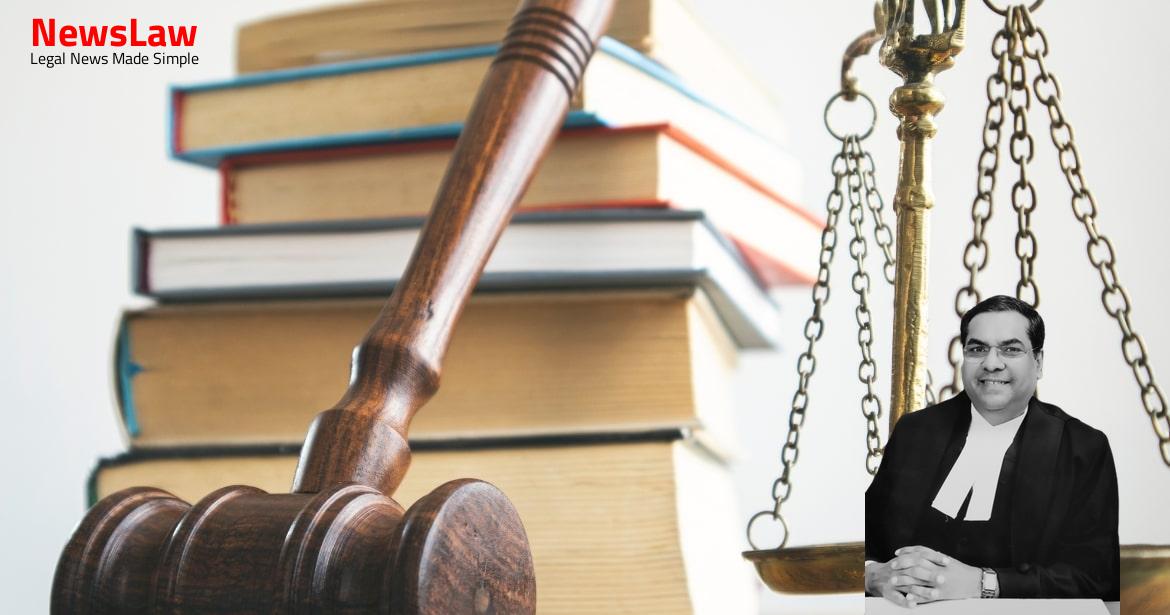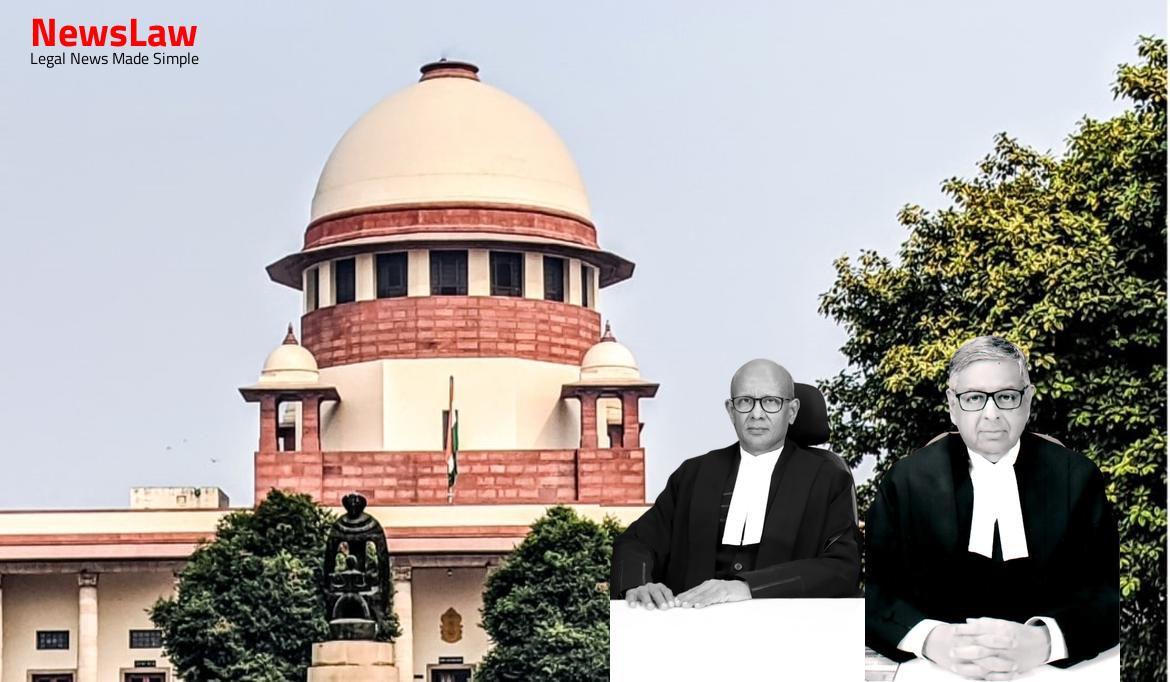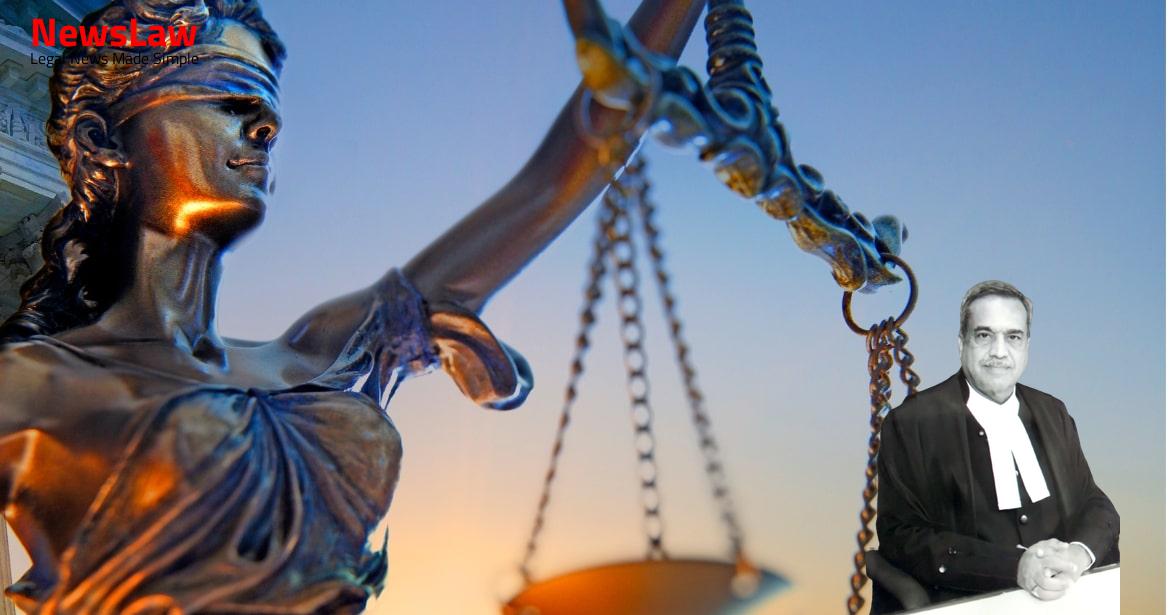Delve into the legal complexities surrounding the revocation of an Essentiality Certificate for a medical college. The court’s in-depth legal analysis emphasizes the State Government’s duty to ensure proper medical infrastructure and public health standards are met. The decision reflects the importance of upholding regulations for the benefit of students, healthcare, and the doctor-patient ratio.
Facts
- The appellant Trust applied for opening a Medical College in Jabalpur with 27.27 acres of land and a 300-bedded hospital.
- Repeated breaches of conditions specified in the Essentiality Certificate were noted, leading to deficiencies in clinical material for the college.
- The college faced challenges such as lack of funds, misbehavior with students, and deficiencies pointed out by the MCI during inspections.
- No renewal of permission was granted for academic years 2017-18, 2018-19, and 2019-20 due to ongoing deficiencies.
- The State Government decided to withdraw the Essentiality Certificate issued to the college.
- The appellant contested the show-cause notice and subsequent cancellation of the Essentiality Certificate through legal avenues.
- The MCI reported gross deficiencies during inspections, leading to rejection of the proposed scheme by the Ministry of Health and Family Welfare.
- The college failed to provide minimum standards required for running a medical college as per MCI regulations.
- The State Government may take over the responsibility of admitted students if the institute fails to meet MCI norms and admissions are halted by the Central Government.
- Ultimately, permission was granted for establishing the medical college subject to certain conditions imposed by the Central Government.
- The High Court summarily rejected the writ petition filed by the appellant
- The High Court held that the State Government acted within the exceptions mentioned in a previous court decision
- Reasons for revocation of Essentiality Certificate by the State included fraud by the college, inability to meet infrastructure standards, and larger public interest
- The High Court allowed the appellant to address deficiencies pointed out by the MCI and reapply for the Essentiality Certificate
- Students from the first batch of 2016-17 petitioned to be accommodated in other recognized colleges due to deficiencies in the appellant college
- The State Government ultimately canceled the Essentiality Certificate based on a detailed examination
- The concerned students from the first batch were allocated to six other recognized private colleges in the state
Also Read: Analysis of Legal Issues in Property Dispute Case
Issue
- 1.1
- The key issue in this appeal is whether the State Government unjustly revoked the Essentiality Certificate granted to Gyanjeet Sewa Mission Trust for establishing a medical college in Jabalpur, Madhya Pradesh.
Also Read: Legal Analysis on Levy of Customs Duty on Non-Excisable Goods Sold in Domestic Tariff Area by an EOU
Analysis
- The State Government issued an Essentiality Certificate to the appellant-College for opening a medical college in 2014.
- The appellant-College failed to fulfill the commitment given to the State regarding minimum infrastructure and MCI norms for six years.
- No renewal permissions were granted by the Central Government for successive academic years post 2016-17.
- The State Government withdrew the Essentiality Certificate due to the appellant-College’s inability to meet standards and obligations.
- The withdrawal was justified as the substratum for issuing the certificate had disappeared.
- The State has a duty to ensure good public health and must act as an enabler for the right to life.
- The decision of withdrawing the Essentiality Certificate falls within the excepted categories outlined in the judgment.
- The State’s authority to grant an Essentiality Certificate is coupled with a duty to ensure the purpose behind it is not defeated.
- The State’s intervention was necessary to prevent further impact on students, healthcare, and the doctor-patient ratio.
- The College’s failure to fulfill the Essentiality Certificate’s requirements justifies the State’s withdrawal action.
- The court agrees with the dictum that the State’s issuance of an Essentiality Certificate is a quasi-judicial function.
- Section 21 of the 1897 Act cannot be invoked for revoking the Essentiality Certificate without explicit provisions in the IMC Act or the 1999 Regulations.
- The State Government can revoke an Essentiality Certificate in exceptional cases like fraud or loss of substratum.
- Fraud vitiates any act or order passed by a quasi-judicial authority.
- The State must ensure proper medical infrastructure to provide adequate healthcare services.
- The Essentiality Certificate is based on the essentiality of medical infrastructure in the region.
- The State has the power to cancel an order obtained by forgery or fraud even if no review power is granted.
- Actionable fraud is deception intended to induce another to surrender property or legal rights.
- The State can certify adequate clinical material only during the proposal of a medical college and not after its establishment.
- Exceptions for the Election Commission to review its order registering a political party include fraud, unlawful activities, or similar grounds.
- Fraud would normally vitiate all acts and orders.
- Exceptions to the registration of a political party include fraud or forgery in obtaining registration, amendment of nomenclature or rules not conforming to provisions, and lack of faith in constitutional principles.
- Section 21 of the General Clauses Act cannot be applied to quasi-judicial authorities.
- The Election Commission acts quasi-judicially under Section 29-A of the Act.
- No authority, including a State Government issuing essentiality certificates, can terminate the existence of a medical college established by the Central Government directly or indirectly.
- Departing from the view taken in Chintpurni Medical College
- Appellant’s hospital taken over by State Government for Covid treatment
- Suggested corrective measures by State Government for failed institute
- Inability of appellant College to meet MCI standards for new medical college
- Failure of appellant College to fulfill aspirations of student community and public
Also Read: Land Acquisition Notification Process: Legal Analysis
Decision
- The High Court upheld the order rejecting the writ petition filed by the appellant-College.
- The State Government’s order dated 5.9.2019, withdrawing the Essentiality Certificate dated 27.8.2014 was upheld.
- The appellant-College was given liberty to remove deficiencies pointed out by the MCI and apply for the Essentiality Certificate again.
- If the request is refused, the appellant-College can pursue appropriate remedy as per law.
- The appeal was dismissed due to lack of merits.
- No costs were ordered.
- Pending applications were disposed of.
Case Title: M/S SUKH SAGAR MEDICAL COLLEGE AND HOSPITAL Vs. THE STATE OF MADHYA PRADESH (2020 INSC 474)
Case Number: C.A. No.-002843-002843 / 2020



